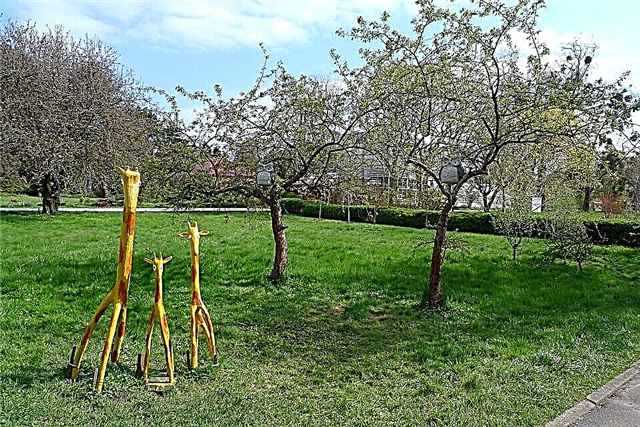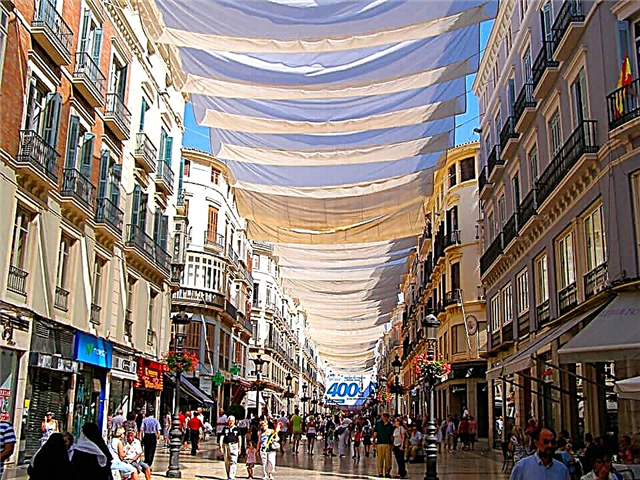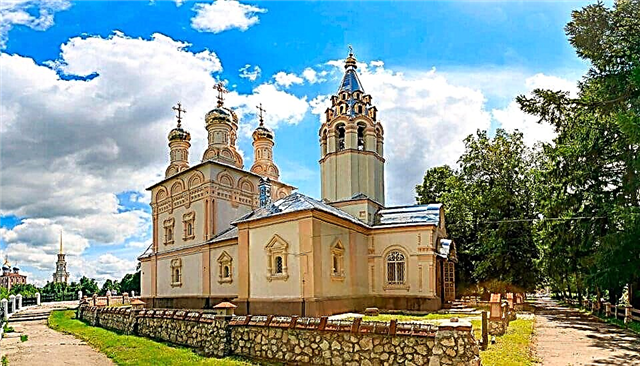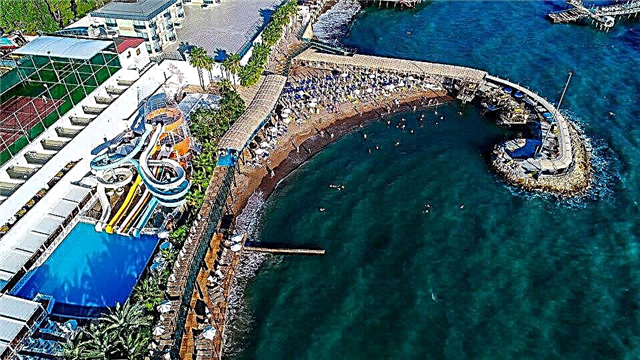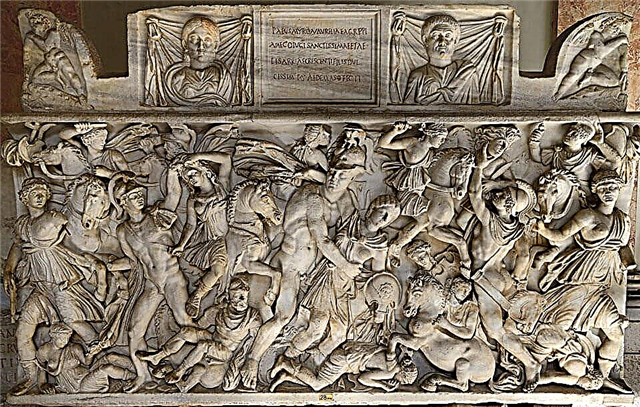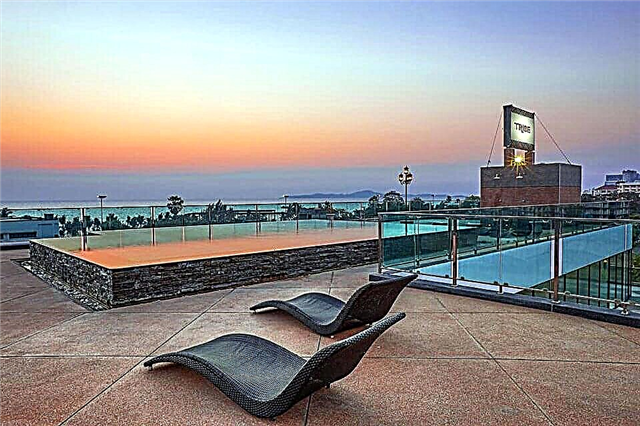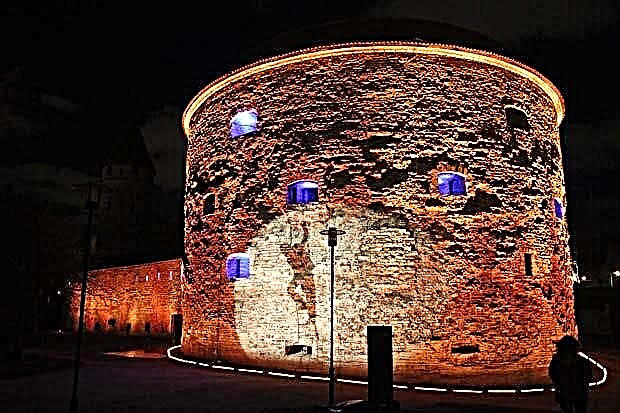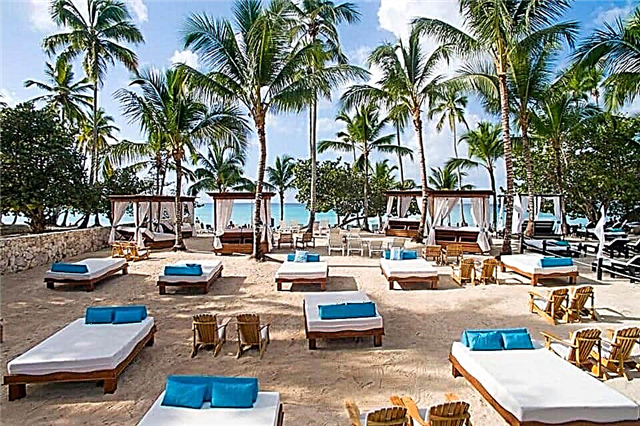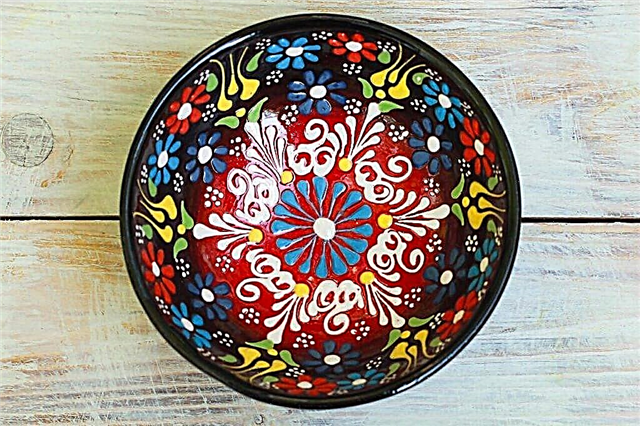Who of the moviegoers does not remember the phrase of Ivan the Terrible from the movie "The Diamond Arm": "Kazan took." It contains an important part of the history of the Tatar city. Until 1552 the Bulgar fortress Kazan was the capital of the Kazan Khanate, and after the conquest by Ivan the Terrible it became part of Russia.
Today this beautiful city has the status of the "Third Capital of Russia", awarded to it in honor of the 1000th anniversary in 2005. The largest political, economic, cultural, educational, sports and religious center can compete with any of the European cities in its development.
The Tatar capital amazes every tourist with the irresistible beauty of streets, avenues, architectural and religious monuments. That there is only one Kazan Kremlin - a true architectural masterpiece of the oriental style.
The citizens of Kazan, who reverently observe ancient traditions and Muslim customs, have created a wonderful national culture. It is reflected in a variety of household items, grocery products and souvenirs. It is not difficult to decide what to bring from Kazan as a gift - the choice of items is huge.
Chak-chak

This confection is almost the main symbol of Tatarstan, without which practically no event in the republic and in the capital can do. As the Russian "bread and salt" expresses hospitality, so the chak-chak is a sign of cordiality and warmth. Any guests, from the most ordinary citizens to top leaders, are greeted with a "honey treat".
Also, this delicious dessert served as an attribute of matchmaking, when the parents of the future newlyweds, when they met, presented them to each other. Not a single festive meal is complete in Tatar families without chak-chak. In our time, chak-chak has lost the status of a festive dish, but it has remained the same popular in many families, especially in the provinces.
You can buy it everywhere: in large supermarkets and small shops, cafes and restaurants. In different regions, it is given a different shape: elongated sticks, round balls, squares. The dough for chak-chak is made from premium flour, eggs and milk.
After frying in hot oil, the product is poured with sweet syrup made from a mixture of sugar and honey. This delicious delicacy is very high in calories, so you can quickly get enough of it.
Baursak
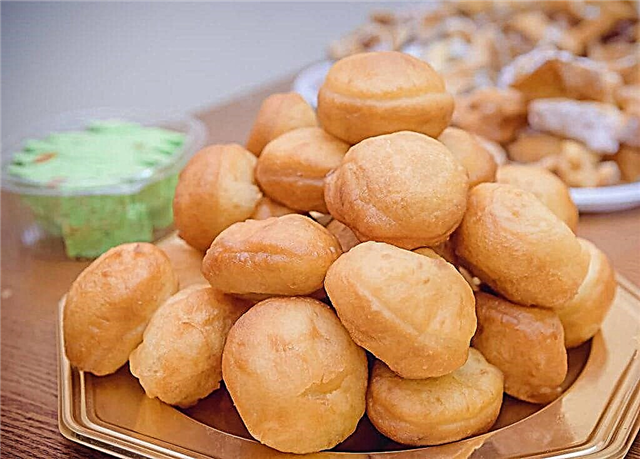
Another type of Tatar dessert - the national dish baursak is always present on the festive table. This type of dough product is prepared by all Turkic peoples, whose ancestors led a nomadic lifestyle. Fast preparation, long shelf life of the product, excellent taste and calorie content have made this type of bread very popular.
Each nationality has its own recipe for making baursak, which differs only in some nuances. Some prepare yeast dough, others - unleavened, with and without the addition of cottage cheese. Basically, they are round or square donuts fried in boiling oil and most often dripped with honey syrup. For a long time, the round baursak symbolized the sun, happiness and joy of life.
According to Tatar customs, it is served for tea not only on holidays, but also on weekdays. Loose, crunchy dough literally melts in your mouth. A favorite delicacy of many families today is prepared at confectionery factories; it can be freely purchased at any grocery store. A beautifully packaged delicacy will be a wonderful gift for children and adults.
Talkysh kaleve

The national Tatar delicacy with a complex name has a short history of origin: it began to be prepared in Kazan at the end of the 19th century. The recipe for an amazing dessert was brought from Turkish captivity by Tatar Borhan, who worked in a pastry shop and learned the method of making sweets. Talkysh kaleve - a dish with Turkish roots became very popular in the 90s of the 20th century.
Borhan's great-grandson Niyaz Sayfullin remembered how his grandmother cooked talkysh kaleve, and how this dessert product helped their family. Sayfullin's trademark sweetness has become the hallmark of Kazan, and the confectioner himself has become a respected person in the republic. The recipe for the Saifullin dessert is included in the classic cookbook by Y. Akhmetzyanov "Tatar Dishes".
Sweet pyramids are sold in shops of the famous Bakhetle chain and in all souvenir shops of the city. Cooking sweetness is not so easy, it takes a lot of time, patience and physical strength to get an airy product that melts in your mouth.
Honey

Whole treatises have been written about the benefits of honey, and Tartary honey is doubly useful. The vitamins, zinc, polyphenols contained in it make this gift of nature a valuable tool for improving health. The apiaries of Tatar beekeepers are located in ecologically clean places, far from highways, so the honey sold on the counters of Kazan is of high quality.
Linden honey is in high demand as a remedy for colds. And there are a lot of lindens in Tatarstan, so bees have a place to collect linden nectar. And flower honey, collected in June, is a storehouse of all natural nutrients and trace elements. All the best honey plants grow on the territory of Tatarstan.
It is no coincidence that the May collection of honey products is very much appreciated by local residents, but also by tourists visiting Kazan. A jar of such honey will be a wonderful gift for a family and especially for children. The stores sell jars of sweet nectar packed in beautiful boxes, which will be a pleasant surprise.
Kazylyk

This is the name of a meat product that used to be cooked only at home. In other words, this is horse meat sausage - a delicious delicacy that can now be bought in stores. Kazylyk is of 2 types: boiled sausage and dry-cured. When young horses were slaughtered for meat in villages, both types of kyzylak were cooked in every family.
The boiled one was eaten quickly, and the smoked one was harvested for future use. To prepare kyzylik, large pieces of horse meat and fat, peeled from films, were marinated in salt and spices for several days. Then they stuffed the cleaned and washed intestines and dried them, hanging them in a cool dry room. Outwardly, this almost black sausage does not look very appetizing, but it is very tasty.
Home-made kyzilyk is fatter than the one that is prepared at meat-packing plants. Tourists especially like to buy Podkovka sausage with a delicate oily taste, very soft and tasty. "Horseshoe" is made in 2 versions - classic sausage and spicy.
Tutyrma

A variety of meat delicacy, known in Tatarstan for a long time, still remains one of the most favorite family dishes.
Tutyrma are small soft and juicy sausages, unusually tasty. They are prepared using pork or beef intestines. The intestines are cleaned well, washed thoroughly and then stuffed with pieces of meat mixed with various cereals.
Buckwheat, rice, millet are boiled until half cooked, lightly fried with lard, onions, spices, mixed with meat, and the intestines are stuffed with this mixture. The semi-finished product rolled into rings is laid in circles and boiled in a cauldron or baked in the oven.
For everyday consumption, sausages are prepared from beef offal with the addition of millet or buckwheat. And tutyrma for a festive feast is made most often from tongue and rice. Today the culinary network "Bakhetle" offers customers many types of tuturma for every taste and budget.
The masters strive to cook it according to old recipes, from quality products, preserving the unique taste of the national dish.
Argamak

Tatarstan today is one of the few places where horses are raised for meat. Horse meat is highly regarded in the meat consumer market. Many residents of Kazan prefer horse meat products to beef and lamb. Argamak is a popular delicacy appreciated by true gourmets.Its preparation method and taste can be compared to the Spanish jamon product.
A piece of young foal is first boiled in salted water, then tied tightly with ropes to give the meat density. Then it is hung and smoked over the smoke of green branches of willow, cherry, currant for 5 days.
If you go home from Kazan for 3-4 days, then you are unlikely to bring an argamak in an edible state. It is worth buying if you fly by plane. Then your family will surely taste this exclusive fresh delicacy.
Kosh Tele

Whoever tasted at least once a crunchy Tatar dessert melting in the mouth called "kosh tele" became his admirer. This is an analogue of the popular pastry - brushwood, which is also known in Russian cuisine. Cooking kosh tele has its own nuances. In addition to the yolks of eggs and a tablespoon of vodka, added to flour in the manufacture of brushwood, milk, sour cream, and soda are poured into the Tatar dessert.
The dough is rolled out in thin, thin layers, cut into short diamond-shaped strips with a knife with carved edges and fried in ghee. Thin dough instantly becomes light and golden. After cooling, the product is sprinkled with powdered sugar, put in a vase in a slide and served on the table for tea.
Kosh tele is a festive dessert at a wedding feast, birthdays and other family celebrations. This delicacy is loved by both children and adults. In chain stores and confectionery shops in Kazan, kosh tele is sold in vacuum packages, which prolongs its shelf life.
Mead

Everyone remembers the obligatory proverb in Russian folk tales: "And I was there, I drank honey-beer" ... I meant an old Slavic drink made from honey by fermentation. Recipes for its manufacture can be found in the ancient chronicles of Kievan Rus.
The process of honey fermentation was long - it was placed in oak barrels, filled with spring water and kept there for 20 years, without adding any hops or yeast. Now mead is not as popular as it used to be, but not in Tatarstan.
Here and today this wonderful drink is made both at home and in an industrial way. Of course, the fermentation of honey is accelerated by the addition of yeast, and this often does not happen in oak barrels. But all the same, mead remains a tasty and healthy drink.
It is offered in cafes and restaurants of Kazan, as well as in all grocery stores and large supermarkets. You can buy ingredients for making mead at home: special yeast, malt concentrate, and a special container.
Tinctures, balms

Tatarstan is also famous for the production of its own brands of alcoholic beverages, in particular, tinctures and balms. The Tatspirtprom branch produces alcoholic beverages using fruits, berries, medicinal herbs, and nuts.
For example, the widely known 40-degree bitter herbal tincture "Timerkhan" has gained popularity not only among Kazan citizens, but also among tourists. It has been produced by the Usadskiy distillery since 2015 on the basis of high-quality food alcohol.
Medicinal melilot, bitter wormwood, linden flowers, coriander seeds, anise - this is the composition of herbs in a unique tincture. In addition to them, honey is added, which makes a useful contribution to the drink. "Timerkhan" possesses high organoleptic and prophylactic properties due to the preservation of biologically active substances of the ingredients. A popular brand among balms is "Bugulma", the taste and medicinal qualities of which have been appreciated by many.
The drink of the Kazan distillery, which has a bright spicy taste, is made on the basis of herbs and a complex of berry fruit drinks, with the addition of honey. Has a rich cognac color. It can be added to tea or diluted with vodka in a 2: 1 ratio.
It is sold in 250-gram and half-liter bottles with a beautiful label. According to consumers, Bugulma is an excellent drink for a small friendly company, especially on cold winter evenings. It warms well, soothes, fights insomnia, will be a good gift for family and friends.
Vodka in a bottle in the form of a gun

In addition to tinctures and balsams, Tatarspirtprom produces branded vodka using modern equipment from well-purified grain alcohol. The elite brand of vodka products is called "Old Kazan". It began to be produced in honor of the 1000th anniversary of Kazan.
This drink, bottled in the form of a gun, is popular with visitors to the city. A glass bottle with a capacity of 0.75 liters, made to order, molded in the shape of an antique gun.
For authenticity, a trigger is even cast on the side of the vessel. The original shape of the bottle is not the main advantage of the strong drink. The quality of vodka, its mild taste are appreciated positively by tourists visiting the Tatar capital. Many consider vodka in a “gun” to be a must-have food souvenir purchased here as a gift.
The label, decorated with views of the ancient Kazan Kremlin, gives a detailed description of the drink: composition, recipe, filtration method, bottling date. All details of the enterprise, expiration date, recommendations for use are indicated.
Tableware

What will certainly not be a problem with choosing in Kazan is the dishes. It is presented here in the widest range in a number of brand stores. Aura of BOHEMIA, Fissman, Status tableware showroom, Rue royale store chains are not a complete list of trade establishments selling all kinds of tableware and souvenirs.
Magnificent porcelain products: dining and tea sets, decorative vases are presented in huge numbers. Various kitchen utensils are pleasing to the eye with their beautiful design and high quality materials. On the shelves you can see many original souvenir items of practical importance.
For example, an electronic measuring spoon-scales with an electronic scoreboard will be an excellent gift for a young mother and for all women.
A set of 4 glasses made in the shape of a skull is suitable for a man. Now, more than ever, it has become fashionable to bring decorative plates and mugs as a gift. In Kazan shops there is a rich assortment of similar products with beautiful paintings, views of the main sights of the city. These are real works of art.
Wooden spoons

An excellent gift is wooden spoons, which are becoming more and more popular at home. They are beautiful, practical, do not oxidize like stainless steel, do not contain chrome and nickel. It is customary to stir acidic foods with a wooden spoon, not a metal one. And if the spoons are made of, for example, juniper, they smell good.
Therefore, having a couple or two wooden spoons in your kitchen does not hurt. Kazan stores have a stunning selection of these products with an ancient history. Indeed, in ancient times, the whole world used them, and in Russian villages they served for a very long time. But spoons are not the only cutlery. And today you can see them as a musical instrument in an orchestra, or as a shovel.
A wide range of wooden materials from which spoons are made, sold in Kazan. Tea, dining, dessert, salad spoons made of bamboo, juniper, birch, linden, cedar, cherry decorate shop windows and counters with enchanting colors of colors and patterns.
The Khokhloma table set of 6 pieces is a true work of art that will be a delightful gift for any family. And teaspoons "Multicolor" will delight kids with their bright beauty.
Kazan

If the name of the Tatar capital, according to history, comes from the Kazanka river, then the name of the dishes very popular among its inhabitants - kazan - comes from the Turkic word "kaz". Translated "kaz" as "scrape, scrape". The suffix “an” added to it gave the name to the vessel with a rounded “scraped” bottom. Nomadic Turkic tribes cooked food on a fire, hanging the cauldron on a tripod. The flame enveloped the entire spherical container at once, quickly heated it, and the food was not cooked for long.
Although those times have long since sunk into oblivion, the cauldron has not lost its everyday relevance. It is irreplaceable at the dacha, picnics, hiking and fishing. The dishes cooked in it are much tastier, more appetizing, healthier. Only in a cauldron pilaf turns out to be crumbly, pieces of meat are softer and more tender.
Cast iron, aluminum, stainless steel cauldrons can be selected in any dishware store in the city. A variety of volumes and designs, from 1-liter to 25-liter, for every taste and wallet.
Bowl

Tea drinking in Tatar families is a special ritual that is treated with respectful reverence. Black or herbal tea is always present on the tables of the Tatars, they drink it slowly, inhaling the aroma and enjoying the taste of the drink. According to the traditions of the Turkic peoples, milk is added to tea and a sweet dessert is served with it.
Tea ware in the national style - a bowl, which is another hallmark of Kazan. Without this vessel in the form of a wide cone, the tea ceremony in the East cannot be imagined. The bowl has become the main Kazan souvenir. In crockery and souvenir shops there is a huge selection of porcelain and ceramic bowls of different sizes and designs.
One cannot but admire the tea set of 6 bowls, a teapot and a dish - the motives of oriental fairy tales are reflected in amazing patterns. Bowls "Scandinavia", "Fish in a pond", "Rainbow", "Classic" and others are very beautiful. Porcelain vessels captivate with thin porcelain and tenderness of patterns.
Especially good are the bowls "Lilia" with a different color of the flower, "Kazanskaya" with the image of the architectural symbols of Kazan. Each of them is an excellent memento.
Religious Products

Like many centuries ago, Muslim religious customs are held sacred in Kazan. An example is the strict observance of Ramadan - a Muslim fast by many Kazan residents and the celebration of the day of breaking the fast of Uraza-Bairam. Performing namaz is still considered important for many townspeople. These rituals are reflected in religious souvenirs.
The main place of active trade in such products is souvenir shops located near the famous Kazan mosque Kul Sharif. Pilgrims and just tourists come here to take some religious symbol with them.
Many people choose the main book of Muslims - the Koran in a beautifully executed design. Artfully woven prayer rugs and other religious items are available.
Skullcap

It is probably difficult to imagine a true Muslim wearing a hat or fashionable cap. It is more common to see a round headdress on his head - a skullcap. All men who come to the mosque are required to wear a black or green beanie. This is a mandatory national attribute for every Muslim believer.
Maxim Gorky preferred a skullcap as a comfortable type of headdress, not being a believer. Is it worth buying such a souvenir for an Orthodox? If you have Muslim friends, a skullcap embroidered with gold on velvet will be an irreplaceable gift for them. But even such a modest hat made of inexpensive fabric will please and will be worn with gratitude.
Traditional robe

In pre-revolutionary Russia, clothing was an expressive identifier of a particular nationality. By what was worn on a person, it was possible to determine his nationality, social status, aesthetic taste.
Today in Tatarstan, although they do not wear national clothes every day, they have not forgotten about it. An example is a traditional robe, samples of which are sold in Kazan shops as souvenirs.
Over the dress, women and men usually wore beautifully embroidered sleeveless camisoles, and over them - robes made of cotton or silk fabric. For women, they were tight-fitting at the waist (chapan), for men, they were spacious and wide, with a shawl collar (jilyan).
Jilyan was sewn from plain or striped fabric. In it, it was customary to go to the mosque and other public institutions. Until now, elderly Tatars in some villages wear these demi-season clothes.
National Tatar shoes

Tatars' footwear, like clothing, has its own national characteristics. In the old days, it was made from bast, felt wool and leather. Preference was given to leather shoes with hard and soft soles. Ichigi - high boots made of soft leather - yuft, morocco.
These are very comfortable, comfortable shoes for long walking or horse riding. When going out into the street, they put on leather shoes with hard soles. Women's ichigi were adorned with intricate ornamentation of multi-colored pieces of leather.
Now elegant bright boots of an authentic look continue to be made and sold in the souvenir shops of the city. The spring-summer shoe is presented in 2 variants - shoes without backs (shoes) and with backs (ballet flats).
Shoes were embroidered with gold and silver thread, beads and pearls. In the villages you can still find women in such painted shoes or ichigas. Anyone can even today buy a pair of colorful shoes in a shoe or souvenir shop.
Shamail

The symbol of the Muslim religion is a painting made with ink, oil, rhinestones on glass or canvas, called "Shamail". This is an important part of the culture of Muslims, a reflection of their religious consciousness and aesthetic tastes.
In Arabic, "shamail" means "dignity, quality", and in Persian - "sacred image". In fact, this is a panel depicting mosques, quotes from the Koran, from poems, aphorisms. In almost every Tatar house, you can see at least one shamail on the wall.
Nowadays, they continue to be made by hand and by printing. The souvenir shops sell various copies of religious paintings with a variety of subjects, in beautiful frames.
Mecca, Medina, Constantinople, Kazan mosques, the tree of life, sandals of the Prophet Muhammad, sacred sayings are depicted on shamils. They have become not only a symbol of religiosity, but also a real piece of painting, a good gift for friends and family.
Kazan cat

Among national Tatar souvenirs, the Kazan cat breaks all records of popularity among guests of the capital. The legendary animal has been depicted on ancient popular prints since the 12th century in various versions. Especially famous was the popular print with a comic plot "How the mice buried a cat." Kazan cat is a special breed of large, wide-faced cats with big eyes and fluffy whiskers.
Possessing remarkable intelligence and resourcefulness, the Kazan cats were excellent mouse-catchers. There is a legend about the rescue of the Tatar Khan by his cat, who sensed enemies and woke up the owner with a loud meow. During the reign of Elizabeth in St. Petersburg, cats were brought from Kazan to fight the invasion of mice. They adequately coped with the function assigned to them, ridding the palaces of mice.
Under Catherine II, who was not too fond of cats, 30 unique Kazan mouse-catchers were brought to the Hermitage, protecting priceless paintings. In 2009, a monument to the honored cat was erected in the capital of Tatarstan. The sculpture, made of tinted aluminum by master I. Bashmakov, presents to the public a well-fed, satisfied cat, lying imposingly on the bed. At the bottom, on a round rug, words of praise for the famous animal are engraved.
Zilant

The mythological creature that came from Tatar legends and fairy tales - Zilant - is similar to the Slavic Serpent Gorynych. But unlike him, the zilant became a heraldic sign among the Tatars. His image appeared on the emblem of Kazan (1672), in 1781 - on the coat of arms of the Kazan province. Today Zilant is a symbol of the football club "Rubin", Kazan University, it is depicted on the coats of arms of some cities of the republic.
The image of the mythological character is shown on decorative lattices, facades of buildings in Kazan, installed on the spire of the tower of the Kazan station in Moscow.Even the role-playing festival is called Zilantkon.
A monument in the form of a wrought metal sculpture, quite graceful and beautiful, is erected to the winged snake. The crown on his head, like the individual scales, is gilded. In the shops you can buy various goods and souvenirs with the image of Zilant.
Figurines of Tukay's fairy tales

In honor of the great Tatar poet and writer, a square and a metro station are named in Kazan, and in the village of Sharanbash-Knyaz there is a street named after him. Monuments to him have been erected in Uralsk and St. Petersburg. The biography of Gabdulla Tukai formed the basis of the opera by R. Akhiyarova "The Poet's Love". His name was awarded the State Prize, which is awarded to art workers of Tatarstan.
The poet, based on the Tatar folk tales, created expressive literary works that became very popular among the people. It is not surprising that the heroes of the tales of the talented master storyteller are reflected in various souvenir products of Kazan. Fairy-tale characters are depicted on bags, T-shirts, panamas, in many figurines.
The most colorful figurine of Shurale - the spirit of the forest from Tukay's poem. It is made of a material stylized in bronze and depicts a forest monster leaning on a log. The figurines of the dzhigit and Su-anasy (the heroes of the same poem), the lovers of Takhir and Zukhra are perfectly made. Figures of animal characters are made: Goat, Sheep, Akbay's puppy, kitten, etc. All of them are sold in souvenir shops and shops.
Shawls and downy shawls

Ancient folk crafts are actively developing in Tatarstan: lace weaving, gold embroidery, carpet weaving, leather mosaic, wood carving, etc. Since ancient times, local craftswomen have been knitting down shawls and shawls here. Almost every village family kept downy goats of the Orenburg breed.
Yarn was woven from thin soft fluff, from which wonderful openwork shawls and spiderweb scarves were knitted. The quality of the finished items was checked with a ring: if a folded scarf was threaded into a ring, then it was highly valued. And today the eye is pleased with the rich selection of elegant headwear that adorns and warms any woman.
Even such celebrities as Caballe, Girardot, Deneuve considered gossamer scarves to be the most elegant headdress. White, gray, blue shawls and scarves with intricate lace, intricate patterns, made by hand find their fans. Some of the down products cost more than 10 thousand rubles. Although, objectively, the work of virtuoso knitters-craftswomen is truly priceless.
Cosmetics from the Mustela factory

When the associate professor of the Department of Pathophysiology of the Kazan Medical Institute, Alexander Devyatayev, created a pharmaceutical enterprise, he did not imagine how much the Mustela cosmetic products would be in demand. It took more than 5 years to create the now famous cosmetics with mink oil.
Unique creams and ointments are produced under the same strict controls as pharmaceuticals. First, their effects were tested on animals, in particular on white mice. Before mass production, Mustela products were tested by dermatologists, allergists, dentists, pediatricians and oncologists and received specialist approval.
As early as 20 years ago, nanoparticles-conductors were used in the manufacture of creams, which facilitate the rapid absorption of the emulsion under the skin. The Mustela natural cosmetics awarded with international gold medals help to prolong the beauty and youthfulness of the skin, relieve allergic itching, and treat dermatitis. Cosmetic milk, creams for the skin around the eyes, for joints, for feet and hands are put up for sale in beauty salons and shops in the city.
What to bring your child

Children of any age, especially toddlers, always expect gifts from them for the arrival of relatives or parents. Kazan has something to buy for preschoolers and schoolchildren. The assortment of toys in Kazan contains many cats, depicted in various versions.
Porcelain and ceramic figurines, soft figurines, magnets, cat-themed mugs are widely represented. You can choose a soft toy made of sheep wool, environmentally friendly and hypoallergenic.
A children's T-shirt with the symbols of the Tatar capital, the Ak-Bars club or with the image of the characters from Tukai's fairy tales will also be a good surprise. One cannot but remember the Tatar sweets: chak-chak, tyklysh keleve, kosh-body will undoubtedly please the child.
The boy will probably enjoy a beautiful children's skullcap souvenir. The girl will be pleased with national Tatar shoes or ichigi, a vest embroidered with gold.
Where to buy souvenirs
In recent years, the capital of Tatarstan has become a very popular tourist city, where not only Russians, but foreigners go. Therefore, a network of souvenir shops, boutiques and shops is rapidly developing here (56) Guests leave a lot of admiring reviews about the “Sun inside Kazan” store. It sells beautiful souvenirs with a national flavor for any purpose.
The specialized cozy shop "Chak-Chak STORE" offers various national sweets. In the shop-museum of Arysh Mae, you can not only make a purchase, but also take a master class, take part in a tasting, etc.
At the Exclusive shopping center, eyes run up from bright soft toys, national Tatar clothes and handmade shoes. All souvenir shops of the city are indicated on the interactive map.

